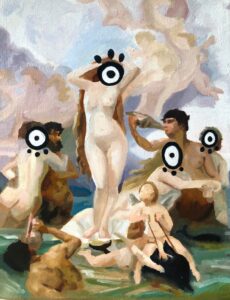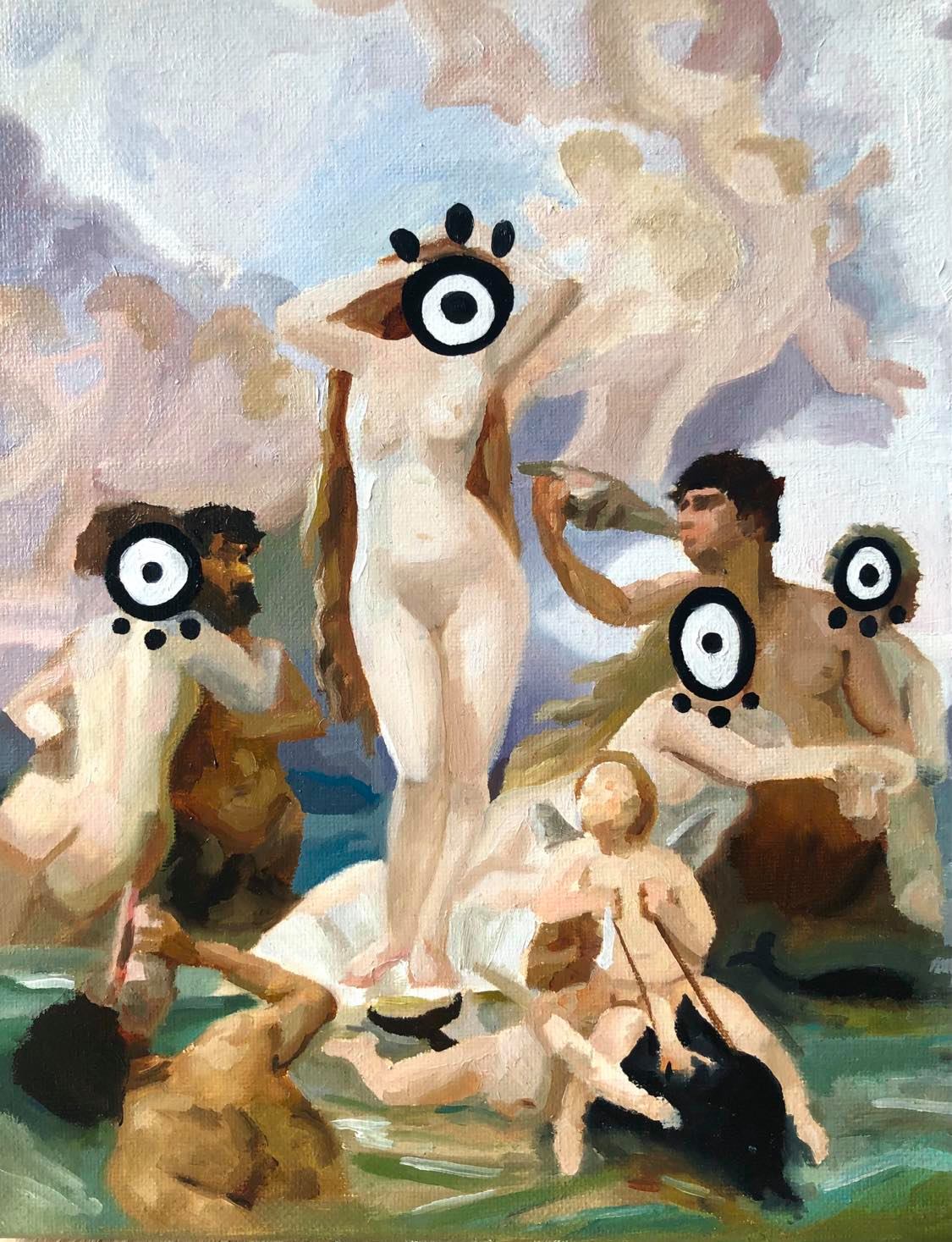“Nothing beautiful is indispensable to life.”
– Theophile Gautier, Mademoiselle de Maupin.

On the 21st of May 2005, David Foster Wallace, an American novelist, gave a speech to graduate students at Kenyon College. “There are these two young fish swimming along, and they happen to meet an older fish swimming the other way,” said Wallace, “who nods at them and says, ‘Morning, boys, how’s the water?’ And the two young fish swim on for a bit, and then eventually one of them looks over at the other and goes, ‘What the hell is water?’” Wallace then commented on the joke, “The immediate point of the story is that the most obvious, ubiquitous, important realities are often the ones that are the hardest to seek and talk about.”
“I think about this a lot. What is the value of the arts in society?” says Ara H. Merjian, professor of Italian Studies at New York University. “If you look at what people did while they were holed up for the past year in Covid, if it hadn’t been for the arts, if it hadn’t been for being able to read and watch movies… I mean your soul withers. So the arts not only have a political duty, as in the case of something like ‘Guernica,’ but they also serve a larger purpose. Like the water in which the two fish are swimming without realizing that it sustains them.”
Professor Merjian, as well as many instructors in artistic and humanistic disciplines all over the world, is concerned about being increasingly leaned upon to produce proof that their courses have led to specific results. It is difficult to quantify or to measure by metrics the so-called “learning outcomes” in fields of knowledge which are equally about doubt.
“Our life is as much about uncertainty, and probing, and questioning as it is about having the answers,” says Merjian, “And the humanities foreground that, they force us to take stock of that. Whereas the humanities are constantly forced to think about themselves in digital terms, I don’t think the exact sciences are asked to take stock of how they use language. Right now, it’s the humanities who are on the back foot and who are constantly forced to prove their worth.”
Sarah Graff, an associate curator in the Department of Ancient Near Eastern Art at the MET, believes that the pandemic has shed some light on the tendency to depreciate creative professions. “I think that it’s been driven home to a lot of people,” says Graff, “that art is not a luxury but in fact it’s something that helps people survive difficult times. I think it’s important to keep in mind that there is nothing frivolous about prioritizing art. People need art. It’s important for us to keep with us as we go on that our work is essential; the work of artists is essential, the work of musicians, and poets, and people who create beautiful things is really really key in difficult times. So I hope that people are taking that from the pandemic, just the essential nature of things that are sometimes passed as luxuries but are in fact not.”
Alfo Gonzalez Aguado, PhD student in Italian Studies and Film History, believes that it is the institutions who should have been convinced to change their attitude during the pandemic. “I would say it is up to people in charge to make sure that the arts are available,” says Aguado, “and are understood as a public good, as a right. People have always been ready to visit museums, go to theaters, watch movies. It is up to institutions, especially public ones, to ensure that these activities are easily accessible. And I don’t think institutions have learned this lesson from the pandemic, unfortunately.”
When asked why she decided to pursue her degree, Giulia Sbaffi, PhD student in Italian Studies, replied, “it’s for silly reasons and serious reasons. Silly reason is that I always have been interested in history. Ability to read complexities and nuances is something I find particularly rewarding, particularly fulfilling. And it’s a transferable skill that I apply in every aspect of my work. I would love to teach, but I’m mostly interested in research.” Sbaffi then mentions how she has a feeling that some humanities will soon no longer exist, “Especially something like my field of study, the Italian Studies, it will just disappear. It is not a question of how humanities are perceived but of geography and human interaction. For a long time studies on Europe were central in defining what humanities are. Right now, the focus is shifting to other areas of the world. For example, here at NYU more doctorate programs are being offered on the Eastern Europe or Asia. The idea of globality that first developed in the early 2000s has now taken hold of the market.”
One subject that came up in all of the interviews was the role of time in defining the importance of an artwork or a piece of literature. A cultural product has afterlives, it may transcend its time and get called upon in various subsequent historical circumstances. Much like mathematical theories, whose applicability eventually exceeds that perceived by the authors during their lifetimes.








